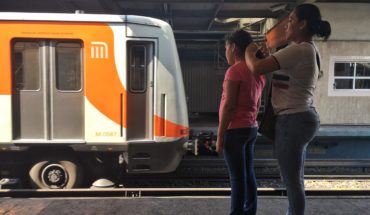Henríquez and Paolucci wrote an editorial column in El Mercurio? in which they referred to the universal health system that the president-elect offered in his program in the form of a single insurance where the Isapre are located outside social security, as complementary insurance, while the mandatory contribution of all would be collected for the public insurer -FONASA, we understand-.
I wrote a letter to the dean to recognize the relevance of the reflection that the authors propose to us, but also its lack of opportunity because, in fact, zero that the fate of the Isapre system is already cast, if it is not defunded before for intrinsic reasons, according to the numbers that we have seen by the press – says Gonzalo Simón that the 7.6% increase in premiums established by the Superintendence would be an insufficient lifeline. I told the dean that the columnists’ references were petty. With an academic bias, the authors only referred to their own work and that of the UNAB —where long-time analysts such as Lenz and Sánchez undoubtedly reside—, in circumstances in which a substantive discussion in this same tenor on the subject had already been unleashed during the administration of Minister Carlos Massad in the government of Frei Ruiz Tagle —documents on the subject abound in the ministerial archives— and, then, also during the first government of Sebastián Piñera, who convened with alarm a Presidential Commission on Health Financing after a pronouncement by the Constitutional Court that declared inadmissible the pricing for risk, which is the central axis of the business turn.
As a result of the work of the Presidential Financing Commission cited in the previous paragraph, the door to a single insurance in a multi-insurer environment was opened by the majority position. All that was needed was a risk compensation fund and, by the way, universalization, including FONASA. There was talk of transforming the Isapre into agents of social security, which seemed good for Chile. The proposal had “sex-appeal” – and it was timely – but there was, nevertheless, a minority position, to which the president of the commission himself and the representatives of the Isapre ascribed, those who were not in favor of such a solution and proposed something that was quite similar to what there was, with very little change. And then— who knows how such a thing finally happened— the strength of the Constitutional Court’s approach was diluted to no longer a real concern; only a small stain of that was scattered on the tiles of the busy boulevard.
So it was that the most pressing moment for the Isapre we ever knew became extinct. In any case, two works were carried out next: the first during the same government of Piñera, which gave rise to a Guaranteed Health Plan -PGS- with a single rate and risk compensation fund for the ISAPRE, which in the form of a bill went to give to the Senate Health Committee and, the other, during the second bachelet government that followed the previous one, by the economist Camilo Cid, in which a solution was designed for the Isapre very similar to the PGS, which finally had no destination due to lack of legislative space. That is, a lot of water has passed under the bridge. Both works were carried out with the presence of a lot of and varied health intelligence. To this day, the PGS project is still dying in the offices of the Senate Health Committee. Meanwhile, the Isapre have already completed 40 years of operation without any major changes to the system having been verified. They begin to resemble the Mutual Societies of accidents at work. Everything remains the same, as if the world is always the same.
However, I fear that the moment of a solution with multiple insurers and risk compensation fund is already behind us, despite the aforementioned authors of the column in the dean and that this is attributable to the porfia and the lack of strategic perspective of the Isapre themselves, which from their comfort zone in this unique market with 7% insured, they did not consider it necessary to make the adjustment and preferred to continue doing the same business as always, well protected by their stakeholders. But today the transition to single insurance has become inevitable, because it is an essential element of the offer of the next government. That proposal puts the Isapre on the real market.
It will be necessary to create the conditions to be able to welcome the entire population in a robust solution andatisfactoria, which does not imply transitory detriments. This will be the great task, which must be careful, gradual, progressive and intelligent. By the way, it will no longer be possible to reproduce the status quo of the current institutionality that will no longer be useful because to fulfill what is sought there will be many things that will need to be changed. We will not be able to continue to do more of the same. Will we be well aware of that?
The content expressed in this opinion column is the sole responsibility of its author, and does not necessarily reflect the editorial line or position of El Mostrador.





